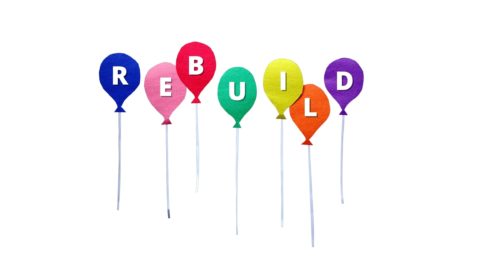Emotional regulation is a valuable asset. It is a tool that affects everything we experience in life. Also if we are easily stressed, angered, or hurt, then our life’s journey will be much more difficult and exhausting.
If we are able to maintain a balance in our thoughts and feelings when facing challenges, then we will be able to find the resources and take the necessary steps to work toward positive solutions.
Emotional regulation in parenthood is equally valuable and impactful on our experiences as we parent our children.
The challenges and hurdles of the parent-child relationship may feel very different from the challenges we face in other areas of our lives. Howver, all challenges share some common steps toward solutions.
Following the steps below will provide great benefit toward achieving positive parent-child communication.
Emotional Regulation Strategies in Parenting
1. Be aware of your thoughts and feelings.
In all cases, be aware of what you are thinking and how you are feeling. This is the first step toward resolving the problems you face. Additionally, it is generally much easier to remain calm when you can identify the reason for your discomfort. Feeling upset and not being able to define the reasons only causes further discomfort and additional upset. Emotional imbalance exhausting, but it also interferes with everyone’s ability to think clearly, communicate effectively, and find workable solutions.
The more you are aware of what you are thinking and how you are feeling, the more control you will have over those thoughts and feelings. As a result, you will also have more energy available to consider and choose positive steps that lead to positive solutions. Your calmness will have a very positive effect on the situation. Additionally, calmness can also contribute to helping your child calm down and join you in finding a solution.
2. Remember that “early intervention” is often the key to successful outcomes.
Recognizing the early signs of frustration and irritation. Remember, this is both your child’s frustrations and your own. Seeing these early signs before feelings and behaviors become more negative often leads to solutions before the behavior becomes more severe.
In moments of frustration, notice the intensity of upset both of you are experiencing. Let your child know that the first goal is for everyone to calm down so that solutions can be found. If it means that “taking a break” from one another is required to start then decide together when your conversation will begin.
Choose a particular time or identify what needs to happen before the conversation begins. For example, “Let’s each find our own space to calm down. Do you want to stay with me or would you rather calm down in your room? In the family room? Where will you be most comfortable?”
Create a “waiting list” of desired activities that can only be enjoyed after you and your child have had a discussion and identified/agreed to one or more possible solutions. For example, “The TV and cell phone will remain off. Also, playing outside will have to wait until we both agree to a solution.”
Since you each experienced the upset from your own point of view, you may not totally agree with one another. However, you have both taken the necessary step toward “calming down” so that a mutually acceptable solution can be found.
Have a calm discussion focused on finding workable solutions that make both you and your child feel “heard” and empowered. This makes it easier for your child to cooperate. If your discussion leads to further arguments then suggest to your child that you both take additional time to calm down before continuing.
3. Remember that dealing with parent-child conflicts and/or challenging behavior is most effective when you have an organized plan.
Following the plan to which you both agreed actually makes both you and your child feel empowered. If the adult exercises all of the power and dominates the search for a solution, the end result will often be additional arguing and/or lack of communication.
Often, this leads to a further lack of cooperation on the part of the child. Although the child may have clearly exhibited unacceptable behavior, he will be more likely to work toward a solution if he feels empowered to join you in defining the outcomes.
Remember that we all tend to cooperate more willingly when we feel that we have at least some control over the solutions and the outcomes.
Consider reading our post on what to do when your child gets angry.
4. Remember that your ultimate goal is to establish parent-child communication that focuses on listening to one another.
This makes everyone feel empowered. As such, your job is to be the “role model.” Even if you disagree with your child, let him know that you are listening to him. Also speak in as few words as possible. Use phrases such as “I hear you” or “I’m listening” or “Thank you for telling me what you are thinking.”
You are not agreeing or disagreeing with your child. You are simply acknowledging that you are listening, which will have a very positive impact on his thoughts and behavior.
As the Pillars for Success has taught so many others, whether you have lost your job, lost a loved one, or feel like you have lost control of your children, the resulting feelings can be devastating without a plan of effective steps to restore emotional balance.
Balance in parenting will most often occur when both parent and child feel empowered even as the adult maintains ultimate control over the situation.
These desired outcomes are possible. However, you will have to practice, practice, practice new ways of understanding and responding to conflict until these routines become an automatic part of your daily skills.
Remember that whether you’re solving your own personal challenges or the challenges of parenting, the same skills will lead you to find positive solutions. Emotional regulation helps all areas of your life!
As I hope you will experience, learning the skills of positive parent-child communication is well worth the effort!













